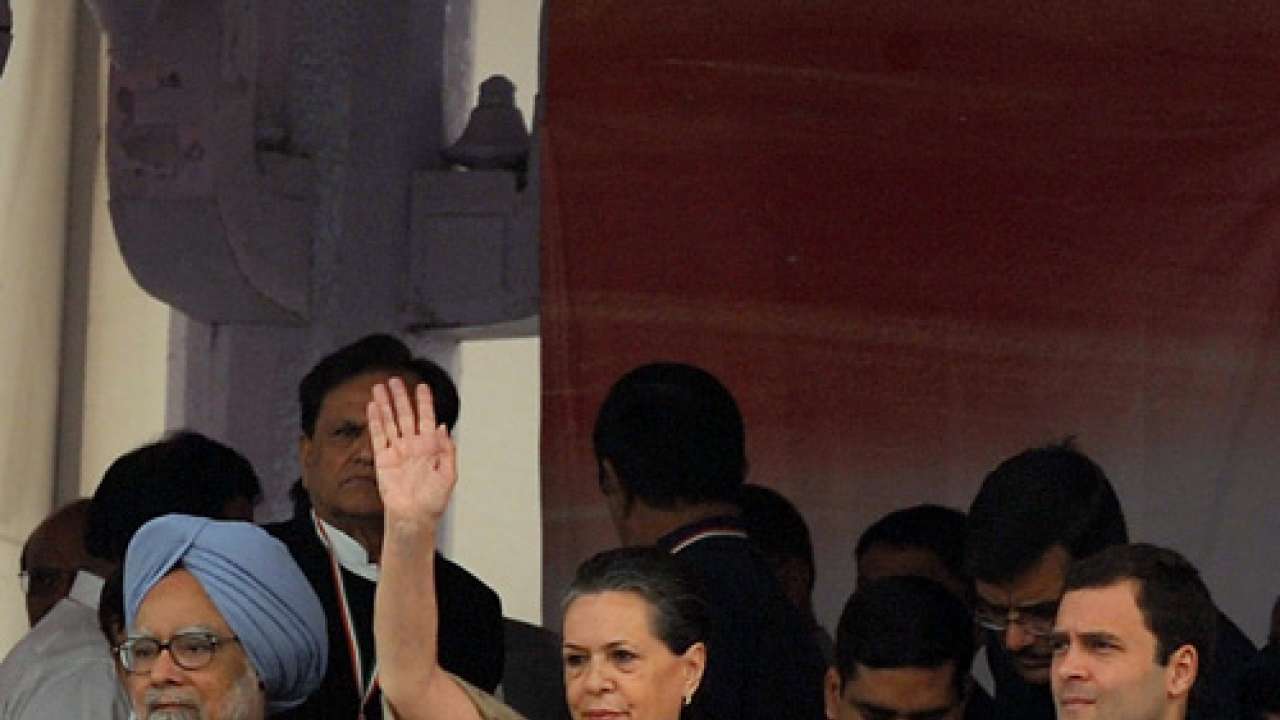
With the Lok Sabha elections merely days away, the country now simply wants to know who will form the next government in New Delhi. The current establishment at the centre is already history; Prime Minister Manmohan Singh already finds himself far in the political background as the Congress party prepares for what could be its biggest defeat ever.
The BJP’s prime ministerial candidate, Narendra Modi, has fared well in almost all the poll surveys conducted so far by various organisations. Modi’s popularity is seemingly at its peak, and on this “wave” he today carries the once flailing BJP singlehandedly to what could be its first major national victory since Atal Bihari Vajpayee.
The BJP, with its 272+ campaign, has been aiming to get the single biggest majority, an outcome which could be more than plausible for the party. Within the party ranks, securing 240 seats is being touted as a realistic goal by the party members. According to a poll conducted by NDTV and Hansa Research Group, of the 319 seats surveyed, 166 were observed to be taken by the NDA, 85 by ‘others’, which includes various regional parties and a mere 52 were seen to be going towards the UPA.
According to the poll, states such as Tamil Nadu, where current Chief Minister Jayalalithaa’s AIADMK is expected to take all the 39 seats, and West Bengal, where again in-power Chief Minister Mamata Banerjee’s Trinamool Congress (TMC) is expected to take 39 of the 42 seats along with other alternative fronts, may collectively win more representation in the Lok Sabha than the Congress. This may create a new type of crisis in the Parliament, that of a fractured and eventually ineffective opposition.
The Congress seems to already have given up its electoral efforts. Its senior members are rushing to block parking spaces in the Rajya Sabha, and other veterans such as current Finance Minister P Chidambaram, are refusing to fight the elections, anticipating historic defeats.
However, it may be a loss for an effective formation of the Parliament if the Congress with its allies fails to win enough seats to form a strong opposition in the lower house. An effective shadow government to track, question and when required, contest the in-power government is a vital institution. Until now, the BJP had fulfilled this role as the single largest political representation standing across the floor from the UPA; now the Congress winning over 120 seats may become vital to have a vibrant opposition to stand in front of the expected NDA government.
Former British Prime Minister Benjamin Disraeli had said, “No government can long be secure without a formidable opposition.” And an opposition formed by broken up, smaller parties will not be able to form a consensus and bond strongly enough to step up as a unit and challenge the in-power government when required.
The success of a democratic process lies on the back of debate and dissent. Counter-debate in Indian Parliament is usually a high-octane, noisy and dramatic affair, which for better or for worse, is still a sign of good democratic structure. Sure, sometimes reactions do go overboard and oppositions oppose in-power parties just because they cannot be seen agreeing with a rival, such as the BJP’s opposition during the UPA government’s signing of the nuclear deal with the United States. The BJP opposed the bill even though they would have done what the UPA did by supporting the deal had they been in power.
The concept of the ‘Third Front’ has already proven itself a failed entity repeatedly in Indian politics. Another attempt during the run-up to this year’s polls, between various parties looking to use their regional prowess to counter the apparent “hegemonic” status of the Congress and the BJP in New Delhi, failed yet again as the CPI and CPM decided to contest solo in Tamil Nadu after Jayalalithaa snubbed them by offering each only one seat. It only takes a small crack to expose big fault lines in politics.
The relations between regional parties such as the AIADMK, TMC, Samajwadi Party, Janata Dal (United) and so on are based around each party’s leader’s own personal agendas and aims, which in almost all cases share no commonalities with each other. Every leader of these parties wants the top chair in New Delhi, and this very fact makes the idea of them existing as a compound opposition unrealistic.
Hence, it actually becomes important for the UPA to do comparatively well against the current BJP juggernaut for a different reason altogether, to form a strong opposition. However good a government a political party may promise, a formidable opposition is crucial, and the institution of the opposition in the Indian Parliament may be in danger of being in a significantly weak position if the fractured ‘others’ manage to outnumber the UPA.
Kabir Taneja, 28, is a Delhi-based journalist and scholar at The Takshashila Institution. He tweets at @KabirTaneja.